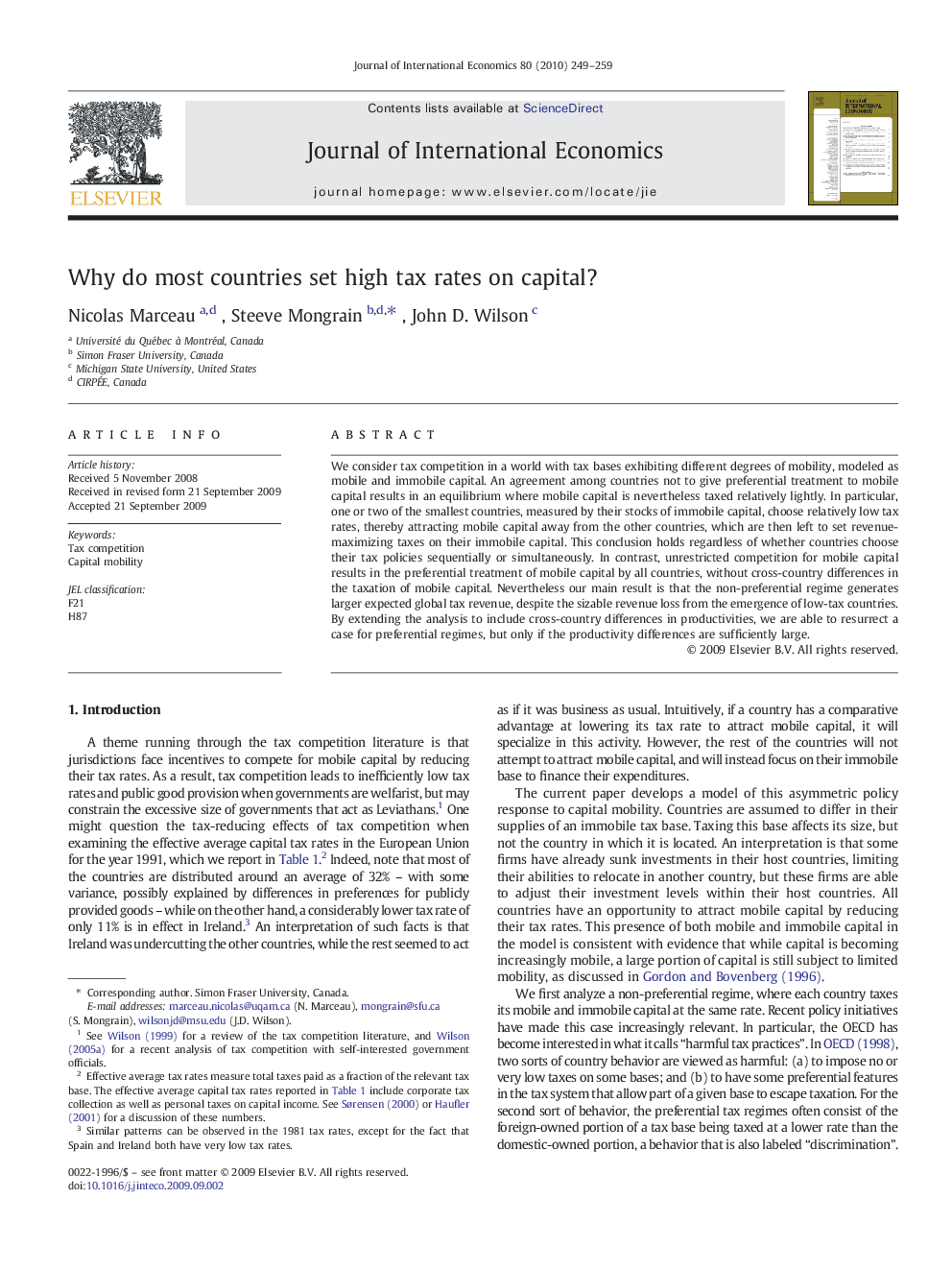| Article ID | Journal | Published Year | Pages | File Type |
|---|---|---|---|---|
| 962767 | Journal of International Economics | 2010 | 11 Pages |
Abstract
We consider tax competition in a world with tax bases exhibiting different degrees of mobility, modeled as mobile and immobile capital. An agreement among countries not to give preferential treatment to mobile capital results in an equilibrium where mobile capital is nevertheless taxed relatively lightly. In particular, one or two of the smallest countries, measured by their stocks of immobile capital, choose relatively low tax rates, thereby attracting mobile capital away from the other countries, which are then left to set revenue-maximizing taxes on their immobile capital. This conclusion holds regardless of whether countries choose their tax policies sequentially or simultaneously. In contrast, unrestricted competition for mobile capital results in the preferential treatment of mobile capital by all countries, without cross-country differences in the taxation of mobile capital. Nevertheless our main result is that the non-preferential regime generates larger expected global tax revenue, despite the sizable revenue loss from the emergence of low-tax countries. By extending the analysis to include cross-country differences in productivities, we are able to resurrect a case for preferential regimes, but only if the productivity differences are sufficiently large.
Related Topics
Social Sciences and Humanities
Economics, Econometrics and Finance
Economics and Econometrics
Authors
Nicolas Marceau, Steeve Mongrain, John D. Wilson,
